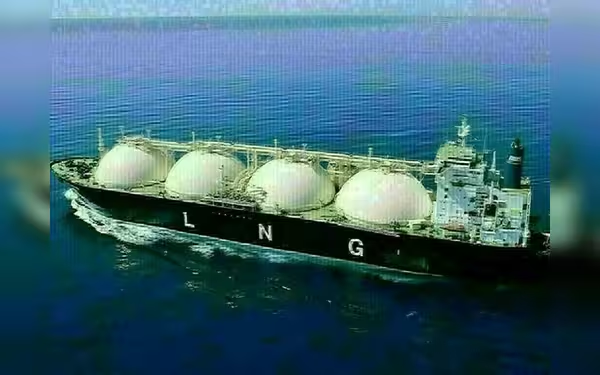Saturday, November 16, 2024 08:23 PM
Bangladesh Resumes LNG Spot Purchases Amid Fuel Demand Recovery
- Bangladesh issues tenders for LNG amid rising demand.
- Government emphasizes transparency in LNG procurement.
- Nobel laureate Yunus seeks aid to stabilize economy.
 Image Credits: brecorder
Image Credits: brecorderBangladesh resumes LNG spot purchases as fuel demand rebounds, emphasizing transparency and seeking aid to stabilize its economy.
Bangladesh is making a significant move in the energy sector as it resumes spot purchases of liquefied natural gas (LNG). This decision comes after a period of unrest and protests that had previously disrupted fuel demand. The country has issued three tenders to acquire LNG from the spot market, signaling a recovery in its energy needs.
Officials have confirmed that the state-owned Rupantarita Prakritik Gas Company is seeking three LNG cargoes, each with a capacity of 138,000 cubic meters. The deliveries are planned for the first and second weeks of October, marking a crucial step for the interim government led by Nobel laureate Muhammad Yunus. This government took office following the ousting of Prime Minister Sheikh Hasina amid widespread protests.
In a bid for transparency, the new administration has committed to purchasing LNG through an open tender process. This approach is expected to foster trust and accountability in the procurement of essential energy resources. Previously, Bangladesh had to halt its LNG spot purchases in July due to the shutdown of the Summit LNG terminal, which suffered damage during a cyclone.
The protests, primarily led by students, along with government-imposed curfews, had significantly reduced fuel demand. However, with the situation stabilizing, the demand for LNG is on the rise once again. Bangladesh heavily relies on LNG for its energy needs and also maintains long-term contracts for LNG imports, securing 2.5 million tons annually from Qatar and 1 million tons from Oman.
Last year, the country imported a total of 5.2 million metric tons of LNG, according to data from Kpler. However, it faces a financial challenge, owing over $600 million to LNG suppliers, as reported by Petrobangla officials. In a recent televised address, Yunus highlighted the government's appeal for $5 billion in aid to stabilize an economy that has been struggling due to rising fuel and food import costs, exacerbated by the ongoing Ukraine war. Additionally, Bangladesh sought a $4.7 billion bailout from the International Monetary Fund (IMF) last year.
As Bangladesh navigates these challenges, the resumption of LNG purchases is a hopeful sign for the nation’s energy future. The government's commitment to transparency and open tenders may not only help in securing necessary resources but also in restoring public confidence. The path ahead will require careful management of resources and international relations, especially as the global energy landscape continues to evolve.













